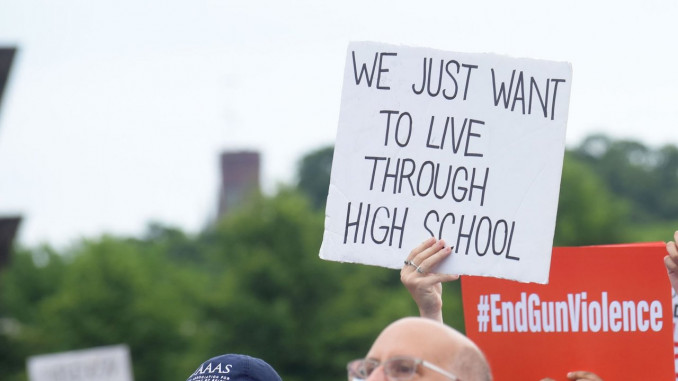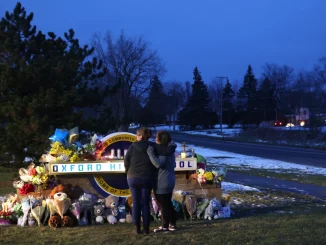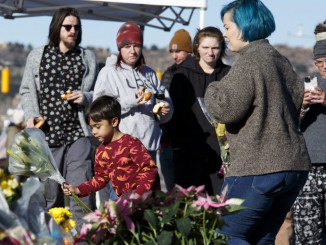
This year has been one of increased mass shootings and other violent acts in many parts of the U.S. This year, as of the the beginning of May, there were 184 mass shootings, where four or more people were injured or killed. These mass murders in schools, in shopping malls, in homes and in the streets have created an atmosphere of fear. After each tragic incident, the media questions the motivations of the people who carried out these horrible acts but not why we are experiencing this epidemic of violence.
Violence in the U.S. is not new. It is at the core of this society — founded on genocide against the indigenous population, and built up through the enslavement of African people and exploitation of migrants from Europe and Asia. This exploitation and violence continues today. The U.S. military is the main purveyor of war around the world with the largest military budget, the most military personnel per capita and the most bases around the world. It is at the center of, or directly involved in, at least 13 wars this century alone. “Violence is as American as apple pie.”
The violence we face takes on many forms. There is the constant violence of poverty. The official number of people living in poverty is about 40 million. The poverty line is absurd –$15,225 for a single person and $23,550 for two adults and a child. Imagine how many people really live in poverty! More than 600,000 people are deprived of housing — forced to live on the streets or in their cars — 30% of them are families with children. Housing activists say that the number is much higher. Officially, an estimated 9.3 million children face food insecurity. Drug overdoses are soaring; 108,000 people died between August 2021 and August 2022, and the rate is increasing. This is the constant violence faced by tens of millions of people in the richest country in the world.
Society is in crisis. Frontline workers face this everyday. Elderly and other vulnerable people are preyed upon. Parents who were fearful of their children getting to school safely can no longer feel relieved when they arrive. Going shopping presents a danger. No place seems safe.
This violence is generated by an economic system that is controlled by and benefits a very small percentage of the population, less than 1%. Their wealth is based on our exploitation. We do the work and they reap the benefits. There is a constant push to get more out of our labor and those who do not have jobs are tossed aside. And those of us who are working are told to look at the less fortunate as lazy and not wanting to work. But there aren’t enough jobs for everyone. There never will be in a capitalist system because the bosses need some workers to be unemployed. The unemployed can be used as a threat to get workers to accept their working conditions because there is supposedly always someone ready to take that job.
Those in power maintain divisions in society to separate us in many ways. So when we look at each other we do not see ourselves. We don’t see another human being. The racism, sexism, the anti-migrant, anti-gay and anti-trans and other prejudices were magnified by the isolation from each other that we experienced during the pandemic and is now being enflamed by the right wing. Some people, isolated in their homes, were drawn into violent fantasies on the internet and have acted on them.
We hear about and sometimes experience the criminal activity that is on the rise everywhere — carjackings, armed robberies of stores and people on the streets, home invasions, and armed crews stealing catalytic converters, sometimes with deadly consequences. This has created a heightened sense of fear. It seems to be everywhere.
This fear can make it seem like we are facing this alone. As a result people call for more police. But that isn’t a solution, no more than filling the prisons has reduced crime. Criminalizing young people who have been isolated throughout the period of the pandemic, influenced by the portrayal of the power of gangsters, while the society barely provides a glimpse of a future for them is not a solution. Nor is criminalizing people who are mentally ill, who have no place to turn but the streets and a life of isolation, abuse and destitution.
It doesn’t mean that we have to accept or tolerate this situation. Something must be done. But to begin to confront the problems, we need to understand the source of the social disease we are confronting. An economic system that is organized to serve the interests of the wealthy few cannot serve the interests of the majority. Our lives and the lives of people around the world are being made intolerable. We are also being threatened with wars and environmental catastrophes. Our lives and futures are at stake. We need to change the entire system.




